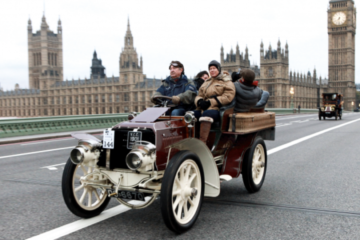By the end of 2014, the North Atlantic Treaty Organisation (NATO) troops stationed in Afghanistan will leave the country. Indeed, after almost 13 years of war, the combat troops of the International Security Assistance Force (ISAF) will end all combat operations and transfer security to the Afghan people and their security establishment. The war in Afghanistan for most of the Western armed forces will be over. The end of combat operations will certainly not mean the end of NATO involvement in the country as trainers, Special Forces and the western intelligence gathering system, will probably remain in Kabul to assist the new Afghan Armed Forces, still lacking key military expertise in the fight against the Taliban. However the future dimensions of the conflict and the political instability in Afghanistan is not the main concern of this article. I would like this article to concentrate on the cost of the conflict.
After every engagement, skirmish, battle and war: we count the costs of war. Men and women in front of legions of paperwork and data crunch numbers and give us the final bill of our traumatic and insatiable need for violence. The Centre for Research on Globalisation estimates that the conflicts in Iraq and Afghanistan have cost the US taxpayer over $6 Trillion. In other words, Harvard’s Kennedy School of Government estimates that both conflicts have cost every American Household the equivalent of $75 000. Britain, which has the second largest NATO contribution in the country, will spend £2 billion in its austere budget returning its troops and equipment back home. The costs of this conflict have financially been immense, especially in the difficult financial times most NATO participants find themselves. In human life, the cost is difficult to exactly identify. NATO has lost over 3 400 troops, while its Afghan counterpart has lost over 10 000 men and women in uniform. The cost in civilian life is probably underestimated. In April 2013, the London based Guardian newspaper estimated that over 16 000 Afghan civilians were killed in the conflict, the numbers could potentially be much larger. This article however would like to focus on a cost of the war that does not hit the headlines or our television screens: the cost for the troops returning home.
With the wars in the Middle East coming to an end for most service personnel, a new battle is being waged: Keeping them alive. The Huffington Post reported that in 2012, more British service personnel took their own lives than were killed in action in Afghanistan, most of them took their own lives after having returned home. The Department of Veteran Affairs in Washington estimates that one US veteran commits suicide every 65 minutes, with an average of 18 veterans taking their lives a day. Back in the United Kingdom the Ministry of Defence estimates that soldiers under the age of 24 are 3 times more likely to commit suicide than civilians in the same age bracket. A Harvard report estimates that 1/3 of returning troops from Afghanistan and Iraq (over 2.5 million US troops served in both conflicts) have been diagnosed with mental health issues ranging from anxiety to Post Traumatic Stress Disorder, while over 50% or 1.56 million men and women have applied for medical treatment and benefits. This war has cost the coalition forces much more than pounds and dollars, this conflict has cost us the mental well-being of thousands of people while more people continue to take their lives and battle their demons. However, a number of problems persist in our attempts to deal with this tragic trend.
In the first instance, the “military covenant” has been broken. As our countries continue to face immense financial and economic difficulties, our governments have taken to the scalpel and re-organised our armed forces leaving some devastating holes in the defence budget. Thousands of military families face losing their source of revenue and some face the loss of their pensions due to large bureaucratic loopholes. In France, for example, planned defence cuts would lead to the suppression of 34 000 jobs. The extent of the cuts have lead Le Chef D’ Etat Major de l’Armée de Terre Bertrand Ract-Madoux (Chief of Staff of the French army) to warn the French minister of Defence that morale in the military was at its all-time low, while living conditions and facilities offered to the members of the armed forces had become inadequate. Another source of problem lies in the fact that the military has institutionally accepted the notion of war trauma, but culturally rejects it. Troops that need help and often seek it, face stigma, segregation, dismissal and a gross lack of compassion. They are thus often left to themselves or dropped into the quagmire that is social security, where social workers are clearly not trained or dispose of adequate time to cover the wounds of war and the broken elements of our society. In a last instance, we (myself of course included) perhaps show a lack of compassion or understanding. As people we are often consumed by our own worries or our own political priorities and often forget the sacrifice that other have made for us so we may have the right and the opportunity to write these kinds of articles. I’m not talking about a sacrifice in blood or life, but a sacrifice in soul and the loss of one’s humanity in times of war. This type of sacrifice could perhaps be the worst a person has to endure. This is of course not a final chant to justify the wars of the past 10 years, no war is truly justified as someone is always wrong. This is just a few words asking us to understand the plight of people we have too often taken for granted, abandoned for the sake of political conviction and left to die in the shadows.


